Elle Woods for the defence (of femininity)
It is so easy to watch a movie and grant it little consideration it beyond its entertainment value. And over than many times I have seen Legally Blonde since its release in 2001 that held true – until I read Legally Blonde: A Classic Case of “Never Judge A Book By Its Cover” and its critique of how the movie sought confront people’s prejudices based on physical stereotypes. While I agreed with the arguments Roy made, I had the nagging feeling that the movie represented something greater. Finally, I realised that beyond smashing stereotypes and promoting feminism, the real achievement of Legally Blonde was something much rarer and arguably much more important. Its determined defence of femininity.
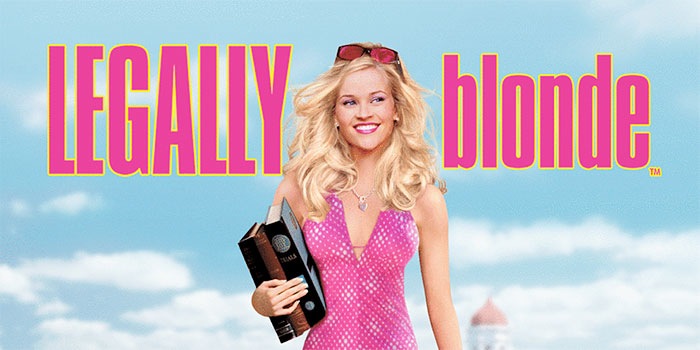
The portrayal of femininity in movies
Far from being an avid film fan, I instead represent the casual movie-goer who grew up on diet of mainstream Hollywood movies; which on adult reflection probably had a greater impact on shaping my view on femininity than I would wish to admit. What I did not realise as a teenager, and for many years as an adult, was that the hyper-femininity espoused by Elle Woods is not common in movies, and certainly not by lead females.
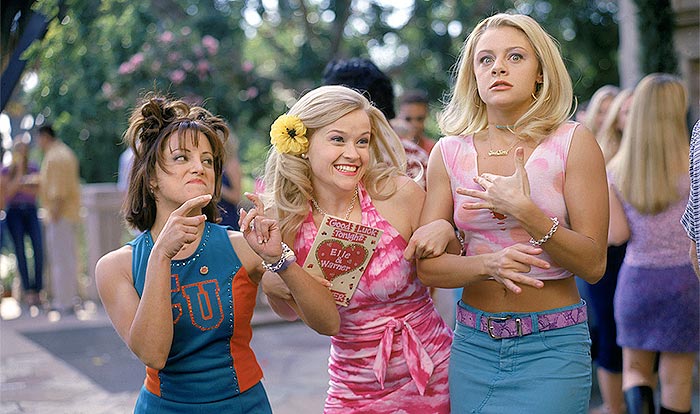
It is hard to name a movie where a highly feminine character is portrayed in a positive way. Across most teen movies, the most feminine characters are often the most flawed; mean, morally corrupted, jealous, vain. Their popularity makes them an object of desire, but by the end, you realise you don’t want to be like them. More often than not, these hyper-feminine characters are also brought down a peg or two by the end of the movie. In Mean Girls, chief mean girl Regina finds salvation at the end of the movie in the form of lacrosse; suggesting that her core traits were unacceptable when in highly feminine packaging, but once she was doing something more masculine she was A-OK. None of the other main characters suffered a serious change in their core traits, with their salvation from being a ‘mean girl’ coming in the form of reduced femininity (Cady) or migrating into settings where their femininity was more acceptable; e.g. Karen as the dumb blonde weather girl.
Like Cady’s brief adventure to the ‘dark side’ of hyper-femininity, female leads in teenage films, tend to be grungy or tomboyish. In other words, ‘real’ girls, who are contrasted against hyper-feminine counterparts. Consider Kat versus hers sister Bianca in 10 Things I Hate About You, Jane versus her best friend Angela in American Beauty, or Maggie versus the sex-bomb Ashley in Whatever it Takes. In each of these movies, we see something to admire in the former and much to deride in the latter. The feminine girl is not someone we aspire to be, because femininity is vacant, vacuous, and vain. We want to be the ‘real’ girl. The one who is carelessly pretty and effortlessly smart, but of course not too smart. She is the one who triumphs in the end and gets the boy.
But where the heroine starts off a little too rough to be real, we have the make-over to make things right up and reveal the easy beauty that had been waiting to exposed. Of course, she is only made pretty enough to make her worthy of the male gaze. She is never allowed to cross the line into hyper-femininity or confidence in her own looks without consequences and by the end of the movie she has shifted back to a prettier, more sexually attractive version of former herself. This trope is not just the domain of teen movies like She’s All That, The Princess Diaries, Pleasantville, and Never Been Kissed. It is there in movies targeted towards adult females as well, like in Miss Congeniality, allowing the anti-femininity messaging to be perpetuated throughout a woman’s life.
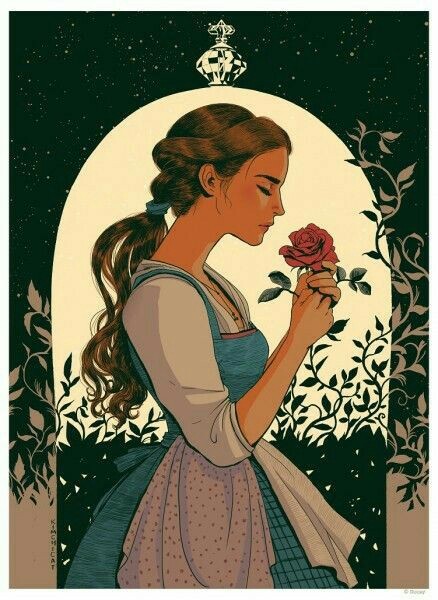
Even fairy tales have been given the ‘modern’ make-over, with the female leads becoming tougher, stronger and more independent. While Emma Watson’s portrayal of Belle in the live-active remake of Beauty and the Beast has been described as strong and feminist, these new traits take on a masculine hue and, in the end, have little impact on the story. Belle, the strong, independent feminist, still falls for the man / beast who deprives her of independence and freedom. It is a similar story with Cinderella Story, Ella Enchanted, Snow White and the Huntsmen and any number of other recent remakes. They may skip the wedding at the end, but that future is implied, so that no matter how strong, independent or powerful the woman is, her fate is still sealed by centuries old tales whose endings we remain too scared to drastically rewrite.
The only films I can point to with hyper-feminine leads who maintain their femininity throughout the movie are Clueless and Bring It On. However, Cher and Torrence are certainly not pushing any boundaries or trying to be more than a rich, carefree LA teenager or a cheerleader. They are not striving to be seen as anything more than they are portrayed and remain posited in worlds where that kind of hyper-femininity is acceptable; making the world fun and pretty, not challenging it.
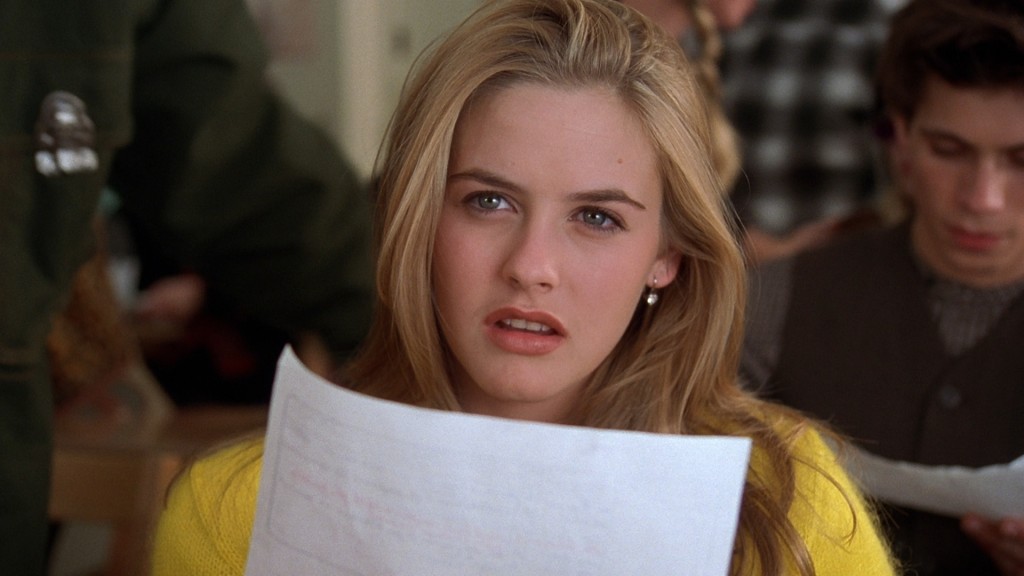
While the inclusion of strong, smart and independent women in cinema is great, their portrayal is too often pitted against femininity; almost as if there can only be one socially acceptable form women in society can take at any one time, which is rarely, if ever, defined by females.
Elle Woods and the feminine defence
In contrast to other movies, Legally Blonde presents us with a protagonist who is unashamedly hyper-feminine. Elle Woods dresses in hot pink in a way that often favours fashion over function and lives in a sorority house that prioritises partying over studying. She is portrayed as completely frivolous, with her main life goal at the start of the movie being little more than marrying well.
However, when her heart is broken and she decides to apply to Harvard Law School to win back her man, we quickly find that below that hot pink surface is an intelligent young woman with a 4.0 GPA who is able to dedicate herself to her goal. Yet when she arrives at Harvard she is shunned and derided because her hyper-femininity is seen as being in conflict with serious scholarly endeavours.
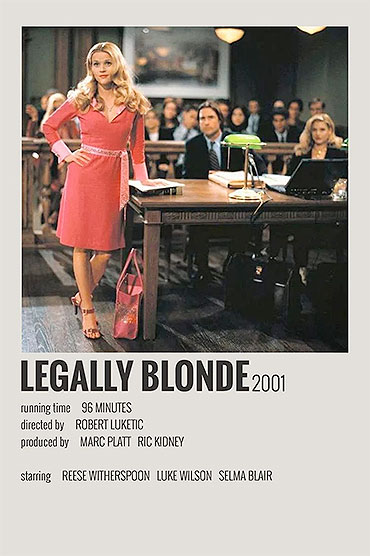
Elle’s strength in maintaining her hyper-feminine identity in the face of this social isolation should not be underestimated. Unlike race, sex or religion, outward expressions of femininity can be changed. It would have been easy for her to alter her clothes, hide her interests and act like her peers; and in doing so confirming the societal belief that femininity is inconsistent with serious pursuits. Instead, Elle remains uncompromisingly feminine, while displaying strength, compassion, and unwavering moral standards. Elle also rejects the notion that femininity equates to sexual availability by rejecting the advances of her boss while on internship.
The final triumph of Elle Woods is that she wins her court case using ‘feminine’ knowledge. Understanding of the chemical properties of a perm would be seen as useless to most in society, but it is this that allows her to identify the inconsistencies in a key witness’s story that were missed by others. Her triumph is a win not just for women, but for femininity and the idea that pretty and pink do not equate to dumb and ornamental.
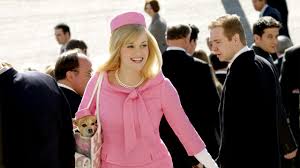
And yet, there is no illusion that one win can change the world. In the sequel, Elle finds herself in an identical situation, this time in Washington, demonstrating that while an individual may be able to overcome the bias they face in a particular situation, femininity continues to be undervalued in society at large.
Why femininity needs more people like Elle Woods
This derision of femininity through movies, as well as the media more broadly, experienced in my youth is unfortunately not something of the past. The girls of today are also acutely aware of the devaluation of femininity and how it shapes the kinds of women they will grow into. And it matters because while films are not to blame for this phenomenon, often just reflecting back societal norms, they can be a medium for change.
I still remember watching St Elmo’s Fire for the first time as a young adult, many years after its release, and being shocked by the casual violence towards women, including one of the female characters being slapped across the face. Such scenes were far less common by that stage in film and television, but it was a reminder of the era into which I had been born and raised; when I too had grown up fully expecting that I would be slapped as an adult by someone I loved.
Times have now changed. While domestic violence is still a real and present danger, it is no longer condoned through film. But times need to keep changing. Girls of today are taught that they can do anything boys can do. Barriers have come down. Doors have opened. Domains once reserved for men have been penetrated by female pioneers who have paved a way for those who wish to follow. And yet femininity remains lesser. Masculinity is still the ultimate prize.
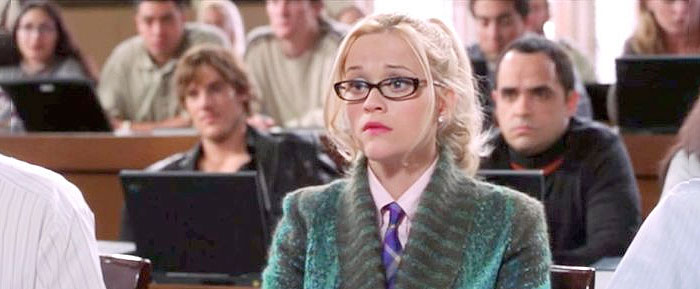
Women who display feminine traits have worse prospects on entering the jobs market than those displaying masculine traits, and they are also less likely to commence in higher paying positions. Furthermore, once women begin to dominate a profession that was once predominantly male, they pay in that industry decreases. Even something as seemingly innocuous as a woman’s name can hinder her professional progress, with lawyers with masculine names being more likely to become judges than those with feminine names.
This higher status of masculinity in society also seems to be driving a trend towards girls being given masculine and gender-neutral names; a trend that is not seen in reverse. Further, masculine names co-opted for baby girls tend to then fall out of favour for boys, with parents less willing to give their boy a feminine name.
Yet if you walk into any girls’ section of a department store, it will be full of pink and princesses. Little girls’ clothing is frilly and glittery. Everything that is promoted so heavily for little girls is slowly stripped from them, with the message that only silly, shallow and frivolous girls continue to like pink, ponies and princesses as they grow up. For too many of us, we bought into that belief, shunning those things and the girls and women who refused to give up everything they once loved – just to show that we can be as good as the boys.
But the truth is, we need to stop signalling to little girls (as well as boys and ourselves) that femininity is not a path to success, or worse that femininity makes them a less worthy type of girl. Women and girls are so wonderfully diverse and so is our femininity. We don’t all need to be like Elle Woods. We just need to celebrate and defend women like her, and remind ourselves that we can be intelligent, independent, compassionate, daring, ambitious and a multitude of other things, while also being feminine. Fabulously feminine.
Just like Elle.
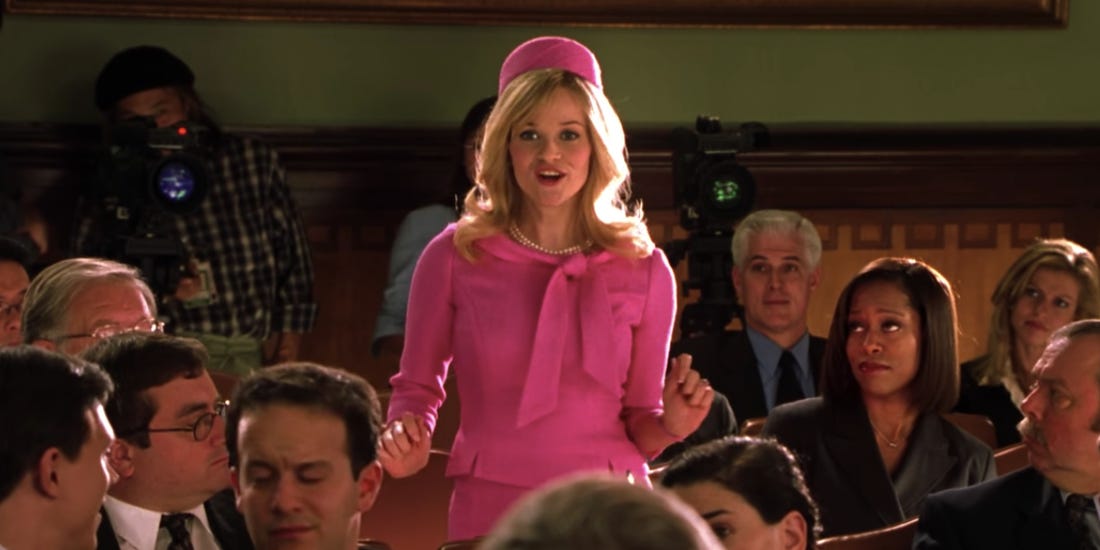
What do you think? Leave a comment.











This movie inspired me to get into medical school. That scene where Elle decided to prove how valuable Elle Woods can be is my go to scene when I’m feeling down.
Same. Her and Hermione Granger inspired me a lot. I don’t think I would be a med student if it wasn’t for them. Representation and role models are important.
Omg same! I entered a difficult major found myself around elitist snobs.. and here I am with bombs ass grades.. Never give up.
Legally Blonde is one of my favorite chick flicks, yet for at least 18 to 19 years I didn’t notice her being a good example of a strong feminine lead until you pointed it out. What adds insult to injury is that I’m writing several stories of female leads that are feminine in nature, and I just realized that aspect about Elle Woods courtesy of your article…
Elle is amazing representation for strong women. So much of the time in media ‘strong’ women are depicted as having masculine traits, there is nothing wrong with having those traits of course but that mentality also equalizes traditional femininity with weakness. There are different types of strength and there’s power in pink!
I greatly concur! Being feminine or into fashion doesn’t take away from intelligence, and women should be portrayed as being smart, whether they’re a tomboy or a girly girl!
What are masculine traits though? What’s “girly” supposed to refer to? Can’t men be into fashion too? Is a girl who who dislikes pink and enjoys martial arts not considered girly? Why is that?
“Traditionally” seen as feminine. Recognizing we that associate certain things with certain genders isn’t sexist. There is nothing wrong with not conforming to those expectations. And there’s an entire conversation to be had with those gender associations. But we make assumptions about women if they do enjoy the traditional and we make assumptions if they don’t.
Truth! Also, heels started off as a mens-only fashion.
We just need to remember that gender roles and norms are socially constructed and the power lies with * us * to challenge them or even overthrow them. Don’t go for gender roles, go for egg rolls.
I’m ready for intersectional feminism, which this movie lacked.
I agree that the movie lacked in the intersectionality department, but you have to note that the movie was released in 2001. Intersectionality was barely a concept back then.
But what it does to make up for lack of intersectionality is that Elle, being a straight blonde white woman, used her privilege to help the less privileged, such as her helping a domestically abused woman (Paulette) stand up to her abusive husband. It also portrays men being supportive of women, such as Emmett believing in Elle when she felt needing a confidence boost, and also supporting her when she confided to him about being sexually harassed by her professor.
But you have to admit, the movie portraying femininity as a strength is a very important feminist message, especially for girls/women (and even feminine boys/men).
I would love to see an intersectional version of the movie, with a POC as the main character.
It tells any woman, that being a stereotypically feminine woman into “girly stuff” doesn’t mean you can’t be strong and empowered.
Which to me, is a very feminist message.
Actually, this movie was inspiring for me since childhood and gave me an understanding of how I can be successful and MYSELF at the same time. You don’t need to look boring or try to LOOK serious, because you need to BE serious and professional. And you can still like those fluffy pens, pink dresses and go to a party in a bunny costume.
Great analysis. I can’t believe I never thought about it that way. I’ve always enjoyed Legally Blonde but with this added layer of meaning, I can’t wait to rewatch it.
I think you hit the nail on the head about how stereotypical femininity is often derided and devalued (in and by both men and women). Yes, I think it’s quite a restrictive and limiting view of how feminine traits should display themselves out in the world. That pink is often mocked as a “girly color” is made even more ironic and funny by the fact that, not too long ago, pink was once considered a masculine color that expressed vitality and strength. Blue was considered more dainty and fragile by comparison. Seeing history from a wider and more comprehensive scope does a good job of showing just how susceptible and pliable our perceptions can be to change.
Pink was considered masculine up to about the 1950s. Pink had this image of strength and vibrancy because it’s a shade of red, but more respectable.
I love Elle Woods and love finding her here! And you’re right…characters like her are sadly lacking. I guess the saying might be, in a world of Cadys and Karens, be an Elle? I also love your analysis of femininity and how/why it gets treated like a negative concept.
Great article. Thank you 😊
This movie shed light on sexual harassment by people in powerful positions. And considering this was way before the MeToo and TimesUp movements, it was ahead of its time.
It’s the perfect example film of girl power done right.
Growing up being taught that femininity was inherent weakness, I spent a lot of my childhood rebelling against anything I considered feminine. But movies like Legally Blonde helped show me I could be strong and intelligent AND look cute doing it.
This movie literally helps me fight off anxiety and procrastination.
Elle Woods is my idol, feminine but not weak, vulnerable but strong. Absolute queen.
I always liked the twist near the end, where you think the perv law professor was the one who vouched for her to go to Harvard Law, and then the lady law professor reveals herself at the salon when Elle’s at her lowest point.
We’ve been here with Marilyn Monroe, too. She was the original blonde bombshell with sex appeal for days, but in real life she was ahead of her time on integration, highly intelligent, well-read, ambitious and determined. Just like Elle. I adore Elle’s genuine love for other people.
Elle was my inspiration when I went back to college last year. I went and got binders and a pencil case covered in flowers. That’s my love, and while my profession won’t be in the flower field, I can bring them with me wherever I go. Oh, and I’m still at a 3.9 GPA while being a single mom.
That’s so awesome well done! I might need to take a leaf from that flower book for when I go back, ergh no pun intended haha. I skipped on glitter-covered everything at uni the first time!
Please could you do another analysis about Mean Girls, this time about how Janice herself is corrupted by popularity and how her judgement of the Plastic’s for their felinity and sexuality, is just as manipulative as judging someone who isn’t as girly or sexual and confident. So how a lot of femme characters in films or through media are portrayed as the villains, and how Janiace is sort of just excused for her choices to use Cady and how unfair it is that she doesn’t get punished, maybe even looking at how the popular film reverses and contradicts the message of girls to stop hating one another, maybe even looking at the problems through Tina Feys writing and possible interviews, and comparing the characters change in the musical.
I remember that troupe being really prominent in the early 2000’s. the “I’m not like other girls” Girl who thinks she’s better than people who are into popular stuff completely missing that automatically dismissing something for being traditional, or popular on sight is just the other side of the coin to someone who follows the crowd without a second thought.
Most women in real life cannot afford to ‘be like Elle’. It’s really sad that being nice or a good person is seen as weakness or naivety.
I’ve worked in an all men environment for the last 4 years, and i feel like I have to put on a façade and force myself to not smile so much or go out of my way to do nice things for others. It sounds horrible but in 4 years I’ve had too many situations where someone has dismissed my ideas, or tried to take advantage of my work, or think i was romantically interested in them because i brought them a cup of coffee when i went to get mine. The reality is that men, most of the time, don’t respect women. And it’s way worse if you are nice, bubbly or have an Elle-like personality.
This will always be a classic movie and a must watch for motivation.
Interesting breakdown. I like that this movie shows that you don’t have to sacrifice femininity and beauty to be determined and intelligent.
The thing I love the most about this movie is Elle’s bond with Vivian, they were supposed to be rivals and fight to win some dude, but they end up being best friends, that’s a very pure message.
The first Legally Blonde movie will always be one of my all-time favorite guilty pleasure movies.
Good article and good articulation of undervalued ideas.Hopefully femininity will be seen as a positive force in society and as a welcome aspect of females personality
Really great article. My favourite part of the film has always been that, at ANY point, Elle could have toned down her femininity to make herself more acceptable to her peers. Despite this, she shows no indication of even considering it. She may consider dropping her pursuit of law as she struggles with the prejudice she’s facing, but she never considers ditching her pink clothing or her regular manicures. Her strength of characters stems from her feminine side.
I think one aspect of the movie that bears discussing is how Elle and Vivian become friends at the end. Other than petty remarks, Elle does not tear down the women around her. She also preserves Brooke’s weight loss secret, despite this jeopardizing Callahan’s case. In this way, not only does Elle draw strength from her femininity, but she doesn’t use her power to tear down the women around her. I think this could add another interesting layer to the discussion of the film as a positive demonstration of women’s relationships for young girls, particularly given the “women tearing down women” so commonly seen in media today.
Legally Blonde was definitely ahead of its time. It’s been awhile since I’ve seen the sequel but the first one remains a classic in my eyes. I agree with other commenters’ points that the story could be updated to account for intersectionality, but I have faith that the upcoming sequel will rise to the occasion and hopefully introduce more bipoc and potentially rectify the un-pc roles lgbtq characters were given thus far.
I absolutely love this movie! I also love how Elle’s friends at the beginning never question her ability to get into Harvard, simply question whether she should go through all the effort for a guy. To often female friendships are portrayed as ‘catty’ and back-handed, to see genuinely supportive female friendships on-screen is so important.
Watching Elle Woods succeed whilst maintaining everything that she likes feels like the perfect response to the dealing with a society that tells women they can’t love things unapologetically.
Such an interesting take on Legally Blonde to which it is hard to disagree. Femininity is often portrayed in a negative light, the character is either “dumb” or self centred. Legally Blonde almost allows women to be okay with femininity, to show that you can be strong and smart but also like the colour pink.
Such an entertaining movie with undertones of femininity and intelligence among women! Great article.
Amazing anaylsis!
While I understand the importance of challenging the demonisation of femininity in media, I equally think we should challenge the concept of traits (whether traditionally masculine or feminine) as inherent at all, something that I believe Legally Blonde fails to do.
I had actually only watched Legally Blonde in 2020. COVID really gets you to watch the things you missed out on as a kid.
I feel like there’s more to this storyline to unpack, like how we need to combat this competitive culture in women. Elle and Vivian end up being there for one another which is a welcome change from the usual cattiness of “rivals”.
“What… like it’s hard?” has not left my lexicon since the age of 8. I always loved this movie and Clueless for what they represent about embracing yourself and your interests regardless of what others might think of you. Elle finds power in what the world around her deems to be character flaws, and she uses her power to help other women (see, Jennifer Coolidge). What a great film, and a great article!
Great film, great article! Haha as soon as I started reading, Cher Horowitz came into my head… was fun to see her pop up a few paragraphs in. Two strong (albeit very privileged) women who aren’t afraid of being exactly who they want to be!
Wow, what an amazing analysis. I never put too much thought into how impactful Elle was in portraying femininity as well as substance. We are so used to seeing the feminine characters being the evil ones, it is so refreshing to see a woman who isn’t afraid to be feminine and go after what she wants.
Your analysis of Mean Girls was on point! I love that movie but it is exactly as you said, a classic ‘anti-feminine’ film. Legally Blonde is a great film, and again as you said, we need to teach girls and boys that femininity should not hinder success.
Great movie!